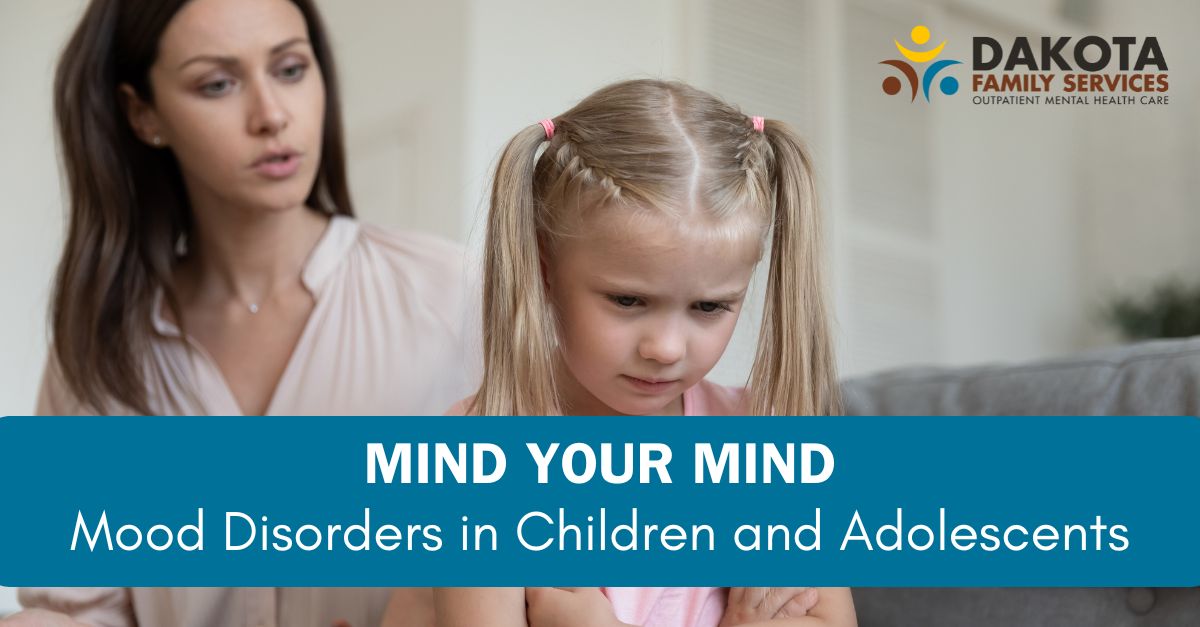
Managing mood disorders in kids with MS is a complex but crucial task. Children with multiple sclerosis (MS) face unique challenges, and their emotional well-being requires specialized care. This exploration delves into the intricacies of recognizing, diagnosing, and treating mood disorders in children with MS, offering a comprehensive guide for parents, caregivers, and healthcare professionals.
This guide will discuss the specific challenges of managing mood disorders in children with MS, exploring the potential interplay between MS and mood disorders. We’ll examine common signs and symptoms, the importance of early intervention and diagnosis, and compare and contrast assessment strategies for children with MS and without MS. Furthermore, we’ll delve into treatment approaches, parental and caregiver support, educational strategies, and long-term management and prevention.
Introduction to Managing Mood Disorders in Children with MS
Mood disorders in children, like depression and anxiety, are significant challenges impacting their overall well-being and development. These conditions manifest differently in children compared to adults, requiring specialized understanding and approaches to diagnosis and treatment. Children with multiple sclerosis (MS) face an additional layer of complexity, as the neurological condition can exacerbate existing mood issues or even trigger new ones.
This article will explore the unique challenges of managing mood disorders in children with MS, highlighting the potential interplay between MS and mood, common symptoms, and the crucial role of early intervention.Understanding the nuances of mood disorders in children with MS is essential for developing effective management strategies. The physical and emotional toll of MS can significantly impact a child’s emotional state, making it imperative to recognize the signs and symptoms, which can sometimes overlap with those of the underlying neurological condition.
Early intervention and accurate diagnosis are critical in mitigating the long-term impact of these conditions on a child’s life.
Definition of Mood Disorders in Children
Mood disorders in children encompass a range of conditions characterized by persistent and significant disturbances in mood. These disturbances can manifest as persistent sadness, irritability, or elevated mood, affecting various aspects of a child’s life, including their social interactions, academic performance, and physical health. Examples include major depressive disorder, dysthymia, bipolar disorder, and anxiety disorders.
Challenges of Managing Mood Disorders in Children with MS
Managing mood disorders in children with MS presents several unique challenges. The physical symptoms of MS, such as fatigue, pain, and motor impairments, can significantly impact a child’s mood and emotional well-being. Furthermore, the unpredictable nature of MS exacerbates the already complex management of mood disorders, often requiring a multifaceted approach involving medical, psychological, and educational interventions. The child’s emotional responses to the diagnosis and treatment process can also contribute to mood fluctuations.
Potential Interplay Between MS and Mood Disorders
The interplay between MS and mood disorders is complex and multifaceted. MS can trigger or worsen mood disorders through various mechanisms. The neurological damage caused by MS can disrupt neurotransmitter systems, leading to changes in mood regulation. Additionally, the chronic and unpredictable nature of MS can contribute to stress, anxiety, and depression. This chronic stress can, in turn, impact the effectiveness of MS treatments.
Conversely, mood disorders can also influence the course and severity of MS symptoms.
Common Signs and Symptoms of Mood Disorders in Children with MS
Mood disorders in children with MS can manifest in various ways. Some common signs and symptoms include persistent sadness, irritability, changes in appetite or sleep patterns, fatigue, loss of interest in activities, difficulty concentrating, social withdrawal, and physical complaints. It is crucial to recognize that these symptoms can overlap with the symptoms of MS itself, making accurate diagnosis challenging.
Parents, educators, and healthcare providers need to be vigilant in observing and documenting these changes.
Navigating mood disorders in kids with MS can be incredibly tough, especially when you’re feeling the weight of everything else. It’s like trying to manage a delicate sailboat in a hurricane – you need a steady hand and a lot of patience. The constant stress of managing a child’s condition, compounded by the ongoing pressures of the pandemic, can lead to burnout.
Experiencing burnout in the messy middle of a pandemic is a very real concern for parents and caregivers, making the task even more challenging. Ultimately, finding support and strategies is key to maintaining a positive outlook for both you and your child.
- Persistent sadness or irritability: A consistent feeling of sadness or irritability, lasting for an extended period, is a key indicator of potential mood disorders. This may manifest as frequent crying, complaining, or expressing feelings of hopelessness.
- Changes in appetite or sleep patterns: A significant increase or decrease in appetite, or changes in sleep patterns (difficulty falling asleep or staying asleep), can be indicative of underlying mood issues.
- Loss of interest in activities: A marked decrease in interest in previously enjoyed activities, hobbies, or social interactions suggests a potential mood disorder.
- Difficulty concentrating: Concentration problems can arise from mood disorders and may also be a symptom of MS itself.
- Social withdrawal: A child experiencing mood disorders may withdraw from social interactions and activities.
Importance of Early Intervention and Diagnosis
Early intervention and diagnosis are critical in managing mood disorders in children with MS. Early identification allows for timely intervention, minimizing the potential long-term impact of the condition on the child’s development and well-being. Early intervention strategies can include therapy, medication, and support groups, which can significantly improve the child’s overall functioning. Prompt diagnosis and treatment can lead to better outcomes and a higher quality of life.
Managing mood disorders in kids with MS can be tricky, requiring a multi-faceted approach. Sleep plays a huge role, and it’s fascinating to consider how factors like sleep needs might connect to genetic predispositions. For example, have you ever wondered if people who need less sleep have a special gene? do people who need less sleep have a special gene Understanding potential genetic links could eventually help us develop more targeted treatments for mood disorders in children facing MS challenges.
Comparison of Mood Disorders in Children with and without MS
| Characteristic | Children with MS | Children without MS |
|---|---|---|
| Underlying Cause | MS, chronic illness, unpredictable symptoms, treatment side effects, and associated stress | Various factors, including genetics, environment, and life events |
| Symptoms | Overlap with MS symptoms, such as fatigue, pain, and motor issues, and mood symptoms like sadness, irritability, anxiety, and loss of interest | Typical mood symptoms, such as sadness, irritability, anxiety, and loss of interest |
| Management | Requires a multifaceted approach addressing both MS and mood disorder symptoms | Management strategies typically focus on the mood disorder |
Assessment and Diagnosis
Accurately assessing and diagnosing mood disorders in children with multiple sclerosis (MS) requires a nuanced approach. The complexities of MS, including its impact on the central nervous system, can significantly influence a child’s emotional and behavioral presentation. Standard diagnostic tools may need modification or supplementation to account for the unique challenges posed by MS.
Evaluation Procedures for Suspected Mood Disorders
Comprehensive evaluation procedures are essential for identifying mood disorders in children with MS. These procedures should begin with a thorough medical history, including a detailed review of the child’s MS symptoms, treatment history, and any family history of mood disorders or other mental health conditions. A detailed neuropsychological assessment can help identify cognitive impairments that might be contributing factors to mood changes.
Assessment Tools and Methods
Various assessment tools and methods are employed to diagnose mood disorders in children. These include standardized questionnaires, such as the Child Behavior Checklist (CBCL), the Youth Self-Report (YSR), and the Mood and Feelings Questionnaire (MFQ). Clinical interviews, focusing on the child’s emotional experience, thoughts, and behaviors, are also crucial. Observation of the child’s interactions in various settings, including school and home, can provide valuable insights into their social functioning and adaptive skills.
Multidisciplinary Approach to Assessment
A multidisciplinary approach is paramount in assessing children with both MS and mood disorders. Collaboration among pediatricians, neurologists, psychologists, psychiatrists, and social workers is crucial. This collaborative effort allows for a holistic understanding of the child’s needs and facilitates the development of a comprehensive treatment plan.
Comparison of Assessment Strategies
Assessment strategies for children with MS differ slightly from those for children without MS. In children with MS, the assessment must consider the potential impact of MS symptoms on mood, behavior, and cognitive functioning. This includes evaluating for fatigue, pain, and other physical symptoms that might mimic or exacerbate mood symptoms. The evaluation must also take into account the effects of MS treatments and therapies on the child’s overall well-being.
Diagnostic Criteria for Mood Disorders
| Mood Disorder | Diagnostic Criteria (Illustrative Example) |
|---|---|
| Major Depressive Disorder | Five or more of the following symptoms for at least two weeks: depressed mood, loss of interest, changes in appetite, sleep disturbances, fatigue, feelings of worthlessness, suicidal thoughts. |
| Bipolar Disorder | Episodes of abnormally elevated or irritable mood, alternating with periods of depression. These episodes significantly impair functioning. |
| Dysthymia (Persistent Depressive Disorder) | Chronic low mood lasting for at least two years in adolescents, with additional symptoms similar to major depression. |
Potential Indicators of Mood Disorders in Children with MS
| Category | Potential Indicators |
|---|---|
| Physical | Fatigue, pain, sleep disturbances, neurological symptoms exacerbating mood |
| Cognitive | Difficulties with attention, memory, executive functioning, affecting mood regulation |
| Behavioral | Irritability, withdrawal, aggression, changes in school performance, social isolation |
Treatment Approaches: Managing Mood Disorders In Kids With Ms
Treating mood disorders in children with multiple sclerosis (MS) requires a multifaceted approach, acknowledging the unique challenges presented by both conditions. A personalized treatment plan, tailored to the specific needs of each child, is crucial for optimal outcomes. This involves careful consideration of the child’s age, the severity of the MS, the type and intensity of the mood disorder, and any co-occurring conditions.Effective management often combines medication, therapy, and supportive services to address the diverse needs of the child and family.
The goal is not only to alleviate symptoms but also to foster resilience, coping mechanisms, and overall well-being.
Medication Management, Managing mood disorders in kids with ms
Medication plays a significant role in managing mood disorders in children with MS. It’s essential to work closely with a child psychiatrist or other qualified medical professional experienced in treating both conditions. Prescribed medications aim to regulate neurotransmitter levels in the brain, impacting mood and associated symptoms.
Careful monitoring of medication effectiveness and potential side effects is critical. Adjustments to the dosage or type of medication may be necessary over time as the child’s condition evolves.
Potential side effects of medications vary depending on the specific drug. Common side effects can include nausea, sleep disturbances, appetite changes, or changes in energy levels. These side effects often resolve with time or with dosage adjustments. Open communication with the prescribing physician about any observed side effects is crucial. Early intervention can help mitigate negative impacts.
Therapeutic Approaches
Therapy plays a vital role in supporting children with MS and mood disorders. It equips them with coping strategies and helps them understand and manage their emotions. Cognitive Behavioral Therapy (CBT) is often a valuable tool in this context. CBT helps children identify negative thought patterns and develop healthier ways of thinking and responding to challenging situations.Other therapeutic approaches, such as family therapy, can be beneficial, especially when the child’s family dynamics are affected by the conditions.
These therapies can provide valuable support and guidance to the family unit, promoting a supportive environment for the child’s well-being.
Accommodations and Support Services
Recognizing the potential need for accommodations and support services is vital. Children with MS and mood disorders may experience difficulties in school or social settings. Appropriate accommodations, such as extended time on assignments, or support from school counselors, can greatly improve their ability to succeed. Furthermore, support groups and resources specifically tailored for children with MS and mood disorders can provide crucial emotional support and practical guidance.
These resources can connect families with peers facing similar challenges, fostering a sense of community and shared experience.
Comparison of Therapies
| Therapy | Potential Benefits | Potential Limitations |
|---|---|---|
| Cognitive Behavioral Therapy (CBT) | Identifying and modifying negative thought patterns, developing coping mechanisms for stress, improving emotional regulation. | May require significant effort and commitment from the child, and may not be suitable for all children. |
| Family Therapy | Improving family communication and understanding, fostering a supportive environment for the child, addressing family dynamics impacted by the conditions. | Requires the active participation and cooperation of all family members, and may not be effective if family members are resistant to change. |
| Support Groups | Providing a sense of community, sharing experiences with others facing similar challenges, gaining practical advice from others. | May not address all specific needs of individual children and families. |
The table above highlights some of the potential benefits and limitations of different therapeutic approaches for children with MS and mood disorders. Each child’s response to therapy will vary, and a combination of approaches may be necessary to achieve optimal outcomes.
Parental and Caregiver Support
Raising a child with both multiple sclerosis (MS) and a mood disorder presents unique and significant challenges. Parents and caregivers often face an overwhelming combination of concerns, including managing the child’s physical health needs related to MS, navigating the complexities of mood swings and behavioral changes, and balancing the emotional needs of the entire family. This often necessitates a significant adjustment in lifestyle, routines, and emotional well-being for everyone involved.Understanding these challenges is crucial for developing effective support systems.
A supportive environment, both for the child and the family, is paramount for successful management and fostering resilience. This support encompasses not only emotional and practical assistance but also access to accurate information and resources.
Unique Challenges for Parents and Caregivers
Parents and caregivers of children with both MS and mood disorders often face a unique set of challenges that extend beyond the typical difficulties of raising a child with either condition alone. These challenges often include: managing fluctuating physical symptoms, dealing with potential learning disabilities or cognitive impairments, coordinating multiple healthcare providers, navigating complex treatment plans, and supporting the child’s emotional and social well-being.
The emotional toll on caregivers is often significant, leading to feelings of stress, anxiety, and even burnout. These situations can impact the child’s development and well-being, as well as the family’s overall functioning.
Importance of Supportive Environments
A supportive environment is critical for the child’s overall well-being and successful management of both conditions. This encompasses a supportive family dynamic, access to appropriate resources, and a collaborative relationship with healthcare professionals. The family’s emotional resilience and ability to cope with the challenges of both MS and mood disorders will significantly impact the child’s development and future.
A structured, predictable environment can significantly mitigate the impact of unpredictable mood swings and symptoms, while fostering a sense of security and stability.
Resources and Strategies for Supporting Parents and Caregivers
Providing support to parents and caregivers requires a multi-faceted approach. This includes:
- Access to Information and Education: Providing clear, accessible information about MS, mood disorders, and their interplay is crucial. Parents and caregivers need accurate and up-to-date knowledge to effectively support their child and make informed decisions about their care.
- Emotional Support Groups: Connecting families with others facing similar challenges through support groups provides a valuable outlet for sharing experiences, gaining insights, and building a sense of community. These groups offer opportunities for emotional support, practical advice, and encouragement.
- Practical Assistance: Practical assistance, such as respite care, transportation services, and financial aid, can significantly ease the burden on parents and caregivers. Access to these resources can allow them to take a break, recharge, and maintain their own well-being.
- Collaboration with Healthcare Providers: Effective communication and collaboration between healthcare providers, parents, and caregivers are essential. Regular meetings, clear communication, and shared decision-making can foster a collaborative approach to care.
Effective Communication Strategies
Clear and open communication between healthcare providers, parents, and caregivers is crucial for effective management. This includes:
- Active Listening: Healthcare providers should actively listen to the concerns and perspectives of parents and caregivers, understanding their unique experiences and challenges.
- Regular Communication Channels: Establishing clear communication channels, such as regular phone calls, email updates, and shared online platforms, can facilitate ongoing communication and collaboration.
- Joint Decision-Making: Involving parents and caregivers in treatment decisions, fostering a collaborative approach, is essential for ensuring that the treatment plan aligns with the family’s values and needs.
- Providing Clear Explanations: Providing clear and comprehensive explanations of diagnoses, treatments, and potential side effects empowers parents and caregivers to actively participate in their child’s care.
Resources and Support Groups
| Organization | Website/Contact Information | Description |
|---|---|---|
| National Multiple Sclerosis Society | [Website address] | Provides information, support groups, and resources for individuals with MS and their families. |
| The Child Mind Institute | [Website address] | Offers information and resources on childhood mental health conditions. |
| [Insert local mental health organization] | [Contact information] | Provides support services for families in the local area. |
| [Insert MS support group in local area] | [Contact information] | Provides support for families in the local area affected by MS. |
Educational Strategies

Supporting children with multiple sclerosis (MS) and mood disorders in their educational journey requires a multifaceted approach that acknowledges both their medical needs and their emotional well-being. A tailored educational plan that considers these factors is essential for fostering academic success and overall development. This approach emphasizes creating a supportive and understanding learning environment.
Importance of Educational Interventions
Educational interventions play a crucial role in managing mood disorders in children with MS. They provide a structured framework for learning, which can be particularly helpful for children experiencing mood swings or emotional instability. Structured routines, clear expectations, and consistent support can help these children feel more secure and grounded in their academic environment.
Modifying Learning Environments
Creating a supportive learning environment is paramount. Adapting the learning environment can significantly impact a child’s ability to succeed academically. This involves making adjustments to the physical space, the schedule, and the teaching methods. For example, reducing classroom distractions, providing a quiet workspace, and incorporating sensory breaks can help manage sensory sensitivities often associated with MS. Flexible seating arrangements, allowing movement when needed, and visual aids can also be beneficial.
Managing mood disorders in kids with MS can be tricky, requiring a multifaceted approach. While focusing on tailored therapies and support systems is crucial, it’s worth considering the broader context. For example, recent studies show that middle-aged Americans are in generally worse shape than previous generations, middle aged americans worse shape than previous generations , which highlights the need for holistic well-being strategies, including proactive mental health care for all ages.
This broader societal context only underscores the importance of early intervention and individualized support for kids with MS facing mood challenges.
These adjustments can significantly improve focus and engagement.
Adapting Academic Expectations and Supporting Learning
Academic expectations need to be adjusted to match the child’s individual needs and capabilities. This might involve providing extra time for assignments, offering alternative assessment methods, or modifying the curriculum to address specific learning challenges. Regular communication with teachers and parents is vital to ensure that the child’s progress is tracked and that any necessary adjustments are made promptly.
Individualized education programs (IEPs) can be instrumental in tailoring the learning experience to meet the specific needs of each child.
Role of School Counselors and Teachers
School counselors and teachers play a critical role in supporting students with MS and mood disorders. They need to be equipped with knowledge about MS and its potential impact on mood and learning. Training programs can equip educators with the necessary skills to recognize and respond appropriately to the unique needs of these students. Teachers should also be trained in recognizing signs of mood disorders and collaborating with parents and healthcare providers to create a supportive environment.
Developing Coping Mechanisms and Stress Management Strategies
Teaching coping mechanisms and stress management techniques is essential for children with MS and mood disorders. These strategies can equip them with tools to manage anxiety, frustration, and other challenging emotions. Examples include deep breathing exercises, mindfulness activities, and positive self-talk. These strategies can help them navigate stressful situations and build resilience.
Promoting Positive Social Interactions and Peer Support
Social interactions are crucial for a child’s overall development and well-being. Strategies to promote positive social interactions and peer support can be implemented in the classroom. These strategies can include peer support groups, social skills training, and activities designed to foster understanding and empathy. Encouraging positive interactions can help build a sense of belonging and reduce social isolation.
Classroom Accommodations for Children with MS and Mood Disorders
| Accommodation | Description |
|---|---|
| Flexible Seating | Allowing students to choose a seat that best suits their needs, such as a chair with back support or a cushioned seat. |
| Designated Quiet Zones | Providing a designated space in the classroom where students can go to de-escalate or focus. |
| Extended Time on Assignments | Providing extra time for completing assignments to accommodate processing speed or fatigue. |
| Alternative Assessment Methods | Using alternative methods like oral presentations, projects, or portfolios instead of traditional tests, where appropriate. |
| Visual Schedules and Routines | Using visual aids to display daily schedules and routines, making transitions clearer and reducing anxiety. |
| Sensory Breaks | Scheduling regular sensory breaks to help manage sensory overload, using strategies like stretching, deep pressure, or calming activities. |
Long-Term Management and Prevention
Navigating the long-term management of mood disorders in children with MS requires a multifaceted approach that goes beyond immediate treatment. It’s crucial to establish strategies that not only address current symptoms but also anticipate potential future challenges and promote overall well-being. This proactive approach emphasizes ongoing monitoring, support, and prevention to help children thrive despite their condition.A long-term management plan for a child with MS and mood disorders must be adaptable and personalized.
It’s not a one-size-fits-all solution. Understanding the unique challenges and strengths of each child is essential to developing an effective strategy that empowers them to manage their condition and maintain a healthy emotional state. Regular reviews and adjustments are critical to ensure the plan remains relevant and impactful as the child grows and develops.
Strategies for Long-Term Management
A comprehensive approach to long-term management requires a consistent monitoring and evaluation process, involving the child, parents, and healthcare professionals. Regular check-ins allow for adjustments to treatment plans and the identification of emerging issues. Open communication channels and clear expectations are vital for fostering a supportive environment.
Importance of Ongoing Monitoring and Support
Ongoing monitoring is crucial to track the effectiveness of the treatment plan and identify any early signs of relapse or worsening symptoms. Regular check-ups with a healthcare team, including neurologists, psychiatrists, and therapists, are essential. Parental and caregiver support plays a critical role in this process. Consistent support provides a stable environment for the child, which is essential for managing the emotional and behavioral impacts of MS.
Educating parents and caregivers about mood disorders and MS is vital to help them recognize warning signs and provide effective support.
Preventive Measures
Preventive measures focus on strategies to minimize the risk of future mood episodes. These may include lifestyle modifications such as regular exercise, a balanced diet, and sufficient sleep. Furthermore, stress management techniques, like mindfulness or relaxation exercises, can help children cope with challenges and prevent exacerbations. Early intervention for any emerging emotional or behavioral issues is key to preventing escalation.
Potential Contributing Factors
Various factors can contribute to mood disorders in children with MS. These include the physical challenges of MS, such as fatigue and pain, which can impact mood and behavior. The emotional toll of living with a chronic illness, social isolation, and difficulties with academic or social functioning can also contribute to mood disturbances. Furthermore, the inherent challenges of navigating the healthcare system, including frequent medical appointments and procedures, can create additional stress.
Creating a Personalized Management Plan
Developing a personalized management plan for each child requires a comprehensive assessment of their specific needs and circumstances. This involves considering the child’s developmental stage, individual personality, strengths, and coping mechanisms. The plan should also incorporate the family’s values, resources, and support systems. Regular reviews and adjustments are critical to ensure the plan remains relevant and impactful as the child grows and develops.
A collaborative approach involving the child, parents, and healthcare professionals is crucial for creating a personalized plan.
| Element | Description | Example |
|---|---|---|
| Baseline Assessment | Initial evaluation of mood, physical symptoms, and overall well-being. | Comprehensive psychological assessment, medical history review, and functional capacity evaluation. |
| Treatment Plan | Strategies for managing mood disorders, including medication, therapy, and lifestyle modifications. | Individualized medication regimen, therapy sessions, and stress-reducing techniques. |
| Monitoring Schedule | Frequency of check-ups and evaluations. | Monthly check-ins with therapists, quarterly neurology visits, and annual psychological assessments. |
| Support System | Identification of available support networks. | Family members, friends, support groups, and community resources. |
| Triggers and Coping Mechanisms | Identifying factors that trigger mood episodes and developing strategies to manage them. | Identifying stress triggers, developing coping mechanisms, and practicing relaxation techniques. |
| Emergency Contact List | List of emergency contacts and crisis intervention resources. | Healthcare providers, crisis hotlines, and mental health professionals. |
Conclusive Thoughts

In conclusion, managing mood disorders in children with MS necessitates a multifaceted approach that acknowledges the unique needs of this population. By understanding the specific challenges, implementing appropriate assessment and treatment strategies, and fostering strong support systems for families, we can work towards improved outcomes and enhanced well-being for these children. Early intervention and a personalized approach are key to navigating this complex journey.





